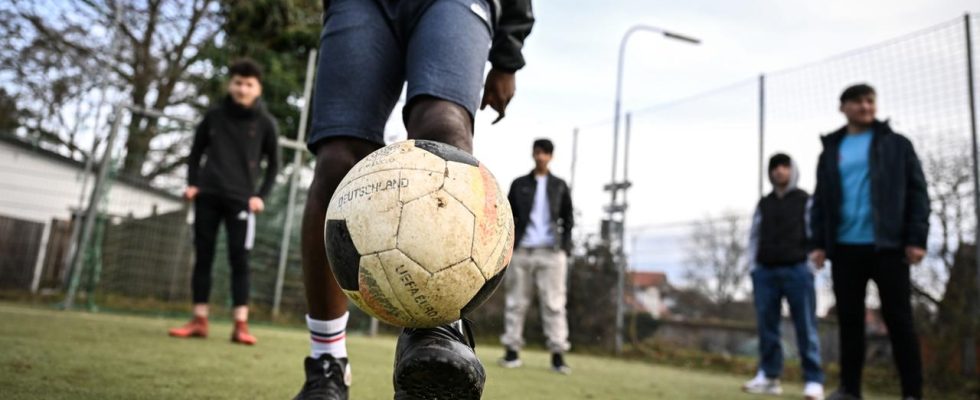Young refugees often present the authorities with challenges: minors who come to Germany without their parents need special care. But host families are difficult to find.
17-year-old Humayon came to Germany from Afghanistan. He was on the run for four months and has been living in the Eifel since the beginning of January. He is one of 19 young refugees who are being looked after by the Corsten youth welfare service in the Euskirchen district. Her actual job is to look after children and young people who are difficult to educate.
Now the tranquil Hellenthal-Reifferscheidt is the temporary home of Humayon. The 17-year-old has concrete plans. “I’ve been in Germany for eleven months. I do an internship in Euskirchen one day a week and then I would like to train as a truck mechanic,” he says.
Public search for host families
In total, just over 100 unaccompanied minor refugees live in the Euskirchen district. Most come from Syria and Afghanistan. The youth welfare office has publicly looked for host families. “Families should offer children a safe and familiar environment,” the appeal said.
“There is a monthly care allowance, there are educational professionals who look after families and young people as needed. This can be several hours a week, but even if there are no difficulties or the care is not so intensively necessary, then every two Maybe an hour for weeks,” says Benedikt Hörter from the Euskirchen district youth welfare office.
Despite this offer, there was little response. The youth welfare office is therefore initially working more closely with relevant youth facilities. Here the young refugees are prepared for an independent life and perspectives are developed.
Many refugees prefer facilities
Most young refugees are not sad about this decision. Many would even find the care in an institution better than in a host family. “Of course, they may have left their own family behind somewhere in their home country. They have the idea of building a life for themselves in Germany in order to be able to support their family back home. The majority of them actually have the idea that they want to become independent, want to stand on their own two feet,” says Tobias Corsten from Corsten Youth Welfare.
The facility also has rooms that function like a shared apartment. Seven to eight young people live together. During the day they are involved in programs such as football, forest excursions or swimming. These programs last 90 minutes. During this time there are also encounters between German and foreign young people. Otherwise there is hardly any contact with each other.
Limited contact with “disruptive” young people
“Most refugees don’t want to have much to do with conspicuous young people,” says Corsten. The carers pay close attention to who comes into contact with whom. “It’s always a balancing act. Who can we establish contacts with? We also have guys who perhaps didn’t have the right framework beforehand, but who show themselves to us in a completely different way,” says Corsten.
Of course, the refugees should come into contact with Germans as often as possible. There is an opportunity to do this in Reifferscheid in the Eifel. Once a week, the refugees walk through the town with locals and help clean up flood damage.
Tobias Corsten is currently trying to build a network. “We are looking for committed people who will open their doors for just a weekend or other facilities that have leisure activities.” The aim is also to connect newly arrived young people with refugees who have been here for a long time. Offers are urgently needed. The Euskirchen district assumes that the number of refugee minors will continue to rise.

